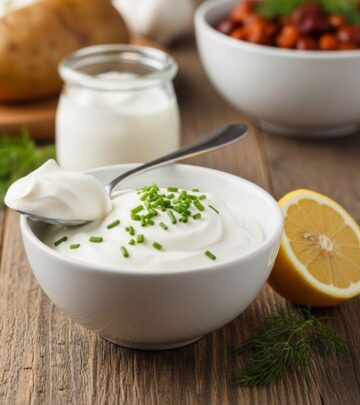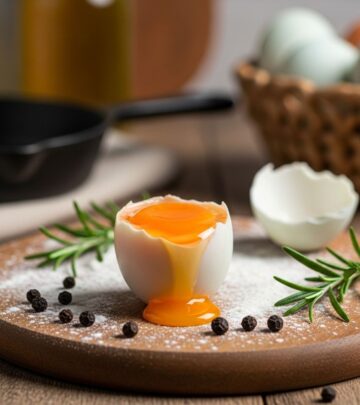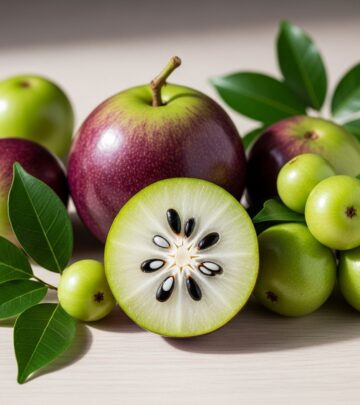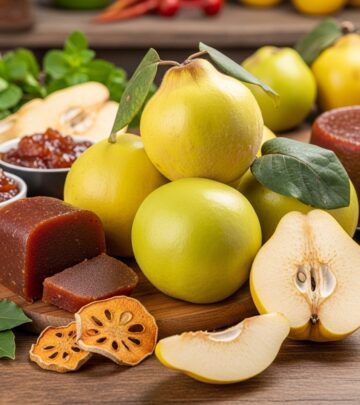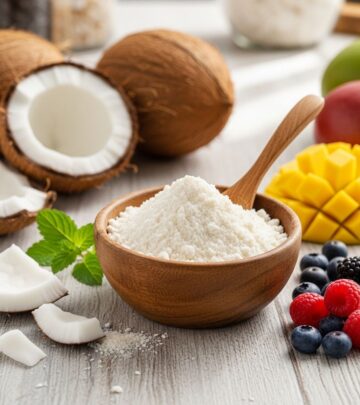Is Monk Fruit Healthy? Nutritional Benefits, Risks & Uses
Zero-calorie sweetness meets time-honored wellness in every recipe.
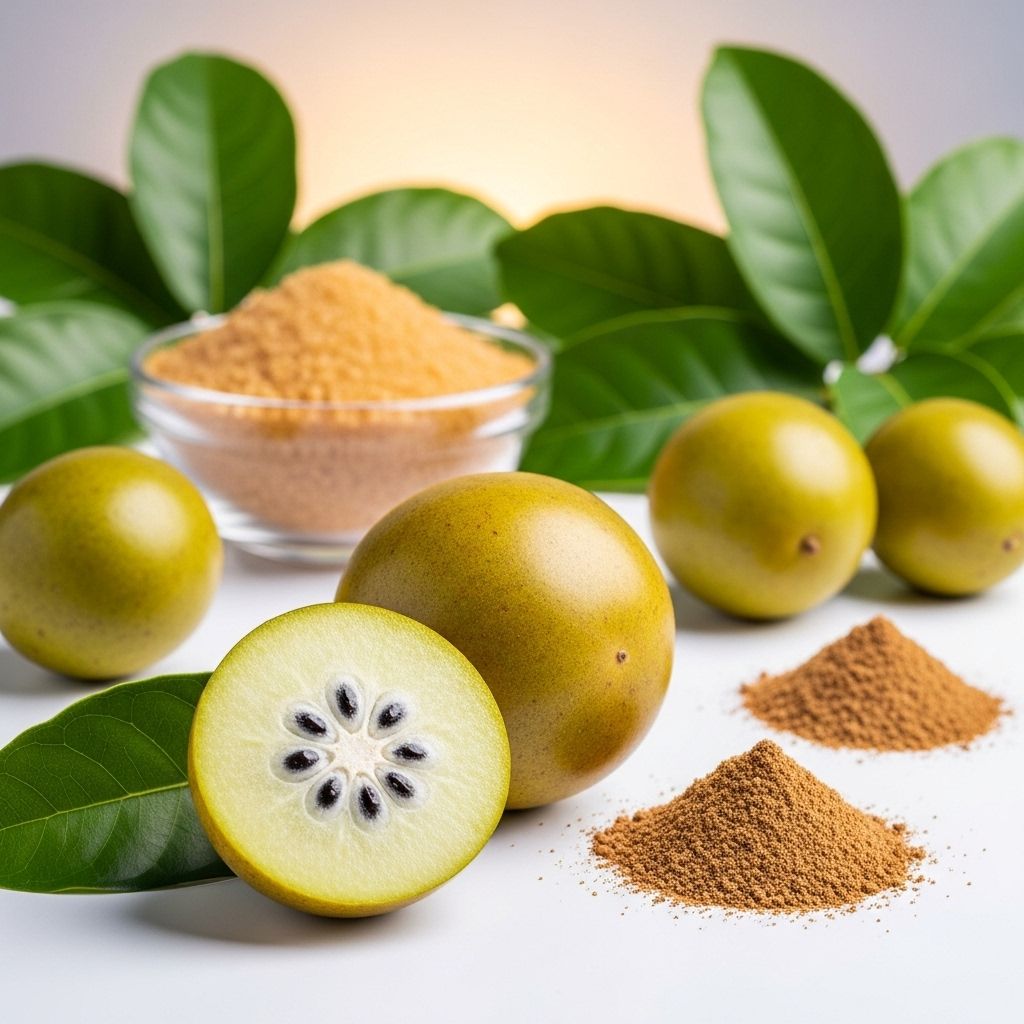
Is Monk Fruit Healthy? Nutritional Value, Health Benefits, and More
Monk fruit, known scientifically as Luo Han Guo, has carved a niche as a natural, zero-calorie sweetener—heralded by dieters, people with diabetes, and wellness enthusiasts alike. Recent attention is reviving ancient traditions: for centuries, monk fruit was prized in Traditional Chinese Medicine (TCM), but now, it finds its way into global kitchens and health trends. This article breaks down monk fruit’s nutritional profile, core health benefits, associated risks, how to use it, and frequently asked questions, offering a comprehensive resource for anyone interested in this unique fruit.
What Is Monk Fruit?
Monk fruit, or Luo Han Guo, is a small, round, green melon native to southern China. It earned its name from Buddhist monks who cultivated the fruit in the 13th century. The sweetener we know today is made from the extract of dried monk fruit, which is up to 250 times sweeter than regular table sugar, yet contains zero calories and carbs.1
- Monk fruit’s sweetness comes from mogrosides, natural antioxidant compounds.
- The fruit is rarely eaten fresh due to its short shelf life and intense sweetness but is widely available as a granulated sweetener, liquid, or even in prepared beverages.
- In traditional Chinese medicine, monk fruit is brewed into teas to soothe sore throats and coughs.
Nutritional Value of Monk Fruit
A defining feature of monk fruit is its lack of calories, carbohydrates, and sugar—all thanks to the concentrated mogrosides, which are not metabolized for energy. The non-nutritive profile makes monk fruit a popular choice for those seeking to reduce caloric intake or maintain stable blood glucose levels.1
| Nutrient | Amount |
|---|---|
| Calories | 0 |
| Carbohydrates | 0g |
| Sugars | 0g |
| Fat | 0g |
| Protein | 0g |
| Key Compounds | Mogrosides (antioxidants) |
*Note: Commercial monk fruit products may include other ingredients like erythritol or dextrose. Always check labels for additives and potential allergens.
Core Health Benefits of Monk Fruit
Monk fruit’s health reputation stems from both traditional uses and promising modern research. Here are some of the most studied benefits:
1. Safe for People With Diabetes
- Does not raise blood glucose: Monk fruit’s key mogrosides are not absorbed by the body in a way that raises blood sugar, making it safe for use by people with diabetes.1,4
- Substituting monk fruit sweetener for sugar can help support blood sugar management and reduce the risk of glucose spikes.
- Some animal studies suggest anti-hyperglycemic effects and improvements in insulin response, but high-quality human studies are still lacking.3
2. Supports Weight Management
- Zero-calorie: Unlike table sugar or honey, monk fruit sweetener adds no calories or carbohydrates to your foods and drinks.2
- Using monk fruit as a sugar substitute can lead to decreased overall caloric consumption, supporting weight loss or management goals.
- Unlike some artificial sweeteners, monk fruit does not appear to cause gastrointestinal discomfort or bloating for most users.1
3. Potent Antioxidant and Anti-Inflammatory Properties
- Mogrosides have demonstrated antioxidant properties, meaning they help combat free radicals and oxidative stress in the body.2,4
- Anti-inflammatory activity: In animal and cell studies, mogrosides have been shown to reduce markers of inflammation and may help mitigate conditions related to chronic inflammation.
- Traditional Chinese Medicine uses monk fruit for respiratory and throat conditions, reflecting its soothing and anti-inflammatory benefits.2
4. May Have Anticancer Potential
- Preliminary studies suggest that monk fruit extracts may suppress the growth of cancer cells, including colorectal and throat cancer, due to their antioxidant action.4
- This anticancer potential is not confirmed in large-scale human research and should not replace other medical treatments.
5. May Support Heart Health
- Animal research indicates monk fruit’s antioxidants may help support healthy cholesterol levels and reduce oxidative stress—both important for heart health.2
- Potential benefits include improved blood vessel function and reduced risks related to cardiovascular disease, but more research is required.
Traditional Uses of Monk Fruit in Medicine
Monk fruit has a deep-rooted history in TCM where it is valued as a longevity fruit.
- Used for soothing sore throats and coughs, often brewed as tea or herbal decoctions.
- Traditional preparations may also aim to reduce phlegm, relieve constipation (by moistening the intestines), and cool the body, aligning with its “cooling” properties in Chinese herbalism.2
- Today, the whole dried fruit can be purchased in Asian markets for medicinal teas or soups.
Potential Risks, Side Effects, and Allergies
- Generally Recognized As Safe (GRAS): The U.S. FDA classifies monk fruit extract as safe for most people, including children and pregnant or nursing individuals.1
- No known common side effects: Most people can use monk fruit sweetener without experiencing the gastrointestinal or allergic reactions seen with some artificial sweeteners.
- Allergic Reactions: Very rarely, some individuals may experience allergic responses. Discontinue use if you experience swelling, itching, or shortness of breath and consult a physician.
- Limited Long-Term Data: While monk fruit has traditional roots, long-term safety data for concentrated extracts or daily large-scale consumption are limited.1
- Be wary of blends: Many commercial monk fruit sweeteners are mixed with erythritol, dextrose, or maltodextrin, which may affect blood sugar or cause digestive discomfort in sensitive individuals.
How to Use Monk Fruit Sweetener
Monk fruit is versatile and can replace sugar in many beverages and foods, providing a similar sweetness profile without calories or blood sugar effects. Here are some practical uses:
- Sweeten beverages: Add to coffee, tea, lemonade, smoothies, or fruit juices.
- Add to breakfast foods: Use in oatmeal, yogurt, or over fruit.
- Mix into sauces and salad dressings.
- Baking limitations: Pure monk fruit sweetener may not produce the same texture in baked goods as sugar—some commercial blends are better suited to baking, but check ingredients for added sugars.
- Prepare frostings, mousse, and frozen desserts like ice cream.
- TCM teas: Use dried monk fruit to brew throat-soothing teas.
Buyer’s Guide and Tips
- Look for products labeled pure monk fruit extract if you wish to avoid sugar alcohols or bulking agents.
- Carefully read nutrition labels; sometimes, monk fruit products are blended with cane sugar or other sweeteners, altering their health impact.
- Store monk fruit sweetener in a cool, dry place. The whole dried fruit should also be kept sealed to preserve freshness.
Comparing Monk Fruit to Other Sweeteners
| Sweetener | Caloric Content | Affects Blood Sugar? | Notable Side Effects |
|---|---|---|---|
| Monk Fruit | 0 calories | No | Rare; occasional mild allergies |
| Stevia | 0 calories | No | Bitter aftertaste, possible bloating |
| Saccharin/Aspartame | 0 calories | No | Controversial safety, possible headaches |
| Honey | ~64 calories per tbsp | Yes | Raises blood sugar, unsuitable for some diets |
| Table Sugar (sucrose) | ~49 calories per tbsp | Yes | Raises blood sugar, weight gain |
Frequently Asked Questions (FAQs) About Monk Fruit
1. Is monk fruit safe for pregnant women and children?
Yes. According to the FDA, monk fruit sweetener is recognized as safe for people of all ages, including pregnant women and children. However, moderation is encouraged, especially as long-term effects are still being studied.1
2. Does monk fruit cause digestive issues?
Most pure monk fruit sweeteners do not cause bloating or gastrointestinal discomfort. However, blends containing sugar alcohols (erythritol, xylitol) may lead to digestive upset in some individuals.1
3. Can I use monk fruit sweetener for baking?
You can, but results may vary. Monk fruit alone does not have the same bulking and browning properties as sugar. For cakes, cookies, or breads, use a monk fruit blend formulated for baking—but check the label for other added sweeteners.
4. How does monk fruit taste compared to sugar?
Monk fruit is intensely sweet, with a clean flavor and mild aftertaste. Most users find it closer to sugar than stevia, which some feel is bitter or licorice-like.1
5. Can monk fruit help lower blood sugar or cholesterol?
Animal and laboratory studies indicate mogrosides may have beneficial effects on blood glucose and cholesterol3, but clinical evidence in humans is still limited.4 It is best used as a sugar substitute to prevent spikes rather than a treatment for disease.
6. Are there any populations who shouldn’t use monk fruit?
There are no widely recognized populations that should avoid monk fruit, but those with food allergies should monitor for rare reactions. If you experience symptoms such as swelling or shortness of breath, discontinue use and seek medical attention.
Key Takeaways
- Monk fruit is a valued traditional remedy and modern sweetener with zero calories, zero sugar, and beneficial antioxidant properties.
- It is generally safe for most people, including people with diabetes and those managing weight.
- Look for products without added sugars or sugar alcohols to maximize benefits and minimize risks.
- Current scientific research, while promising, is largely based on animal studies; more human trials are needed.
References
1 Healthline, Medically reviewed article on monk fruit
2 Mega We Care (MegaLife), Top 15 Benefits of Luo Han Guo
3 PMC Journal: Bibliometric analysis and animal studies
4 Medical News Today: Monk fruit benefits, side effects and uses
References
- https://www.healthline.com/health/food-nutrition/monk-fruit-health-benefits
- https://www.megawecare.com/good-health-by-yourself/nutrition/luo-han-guo-monk-fruit-benefits
- https://pmc.ncbi.nlm.nih.gov/articles/PMC10495570/
- https://www.medicalnewstoday.com/articles/monk-fruit-benefits
- https://health.clevelandclinic.org/why-you-should-use-monk-fruit-sweetener
- https://cris.msu.edu/news/sweetener/stevia-monk-fruit-sweeteners/
Read full bio of Sneha Tete


